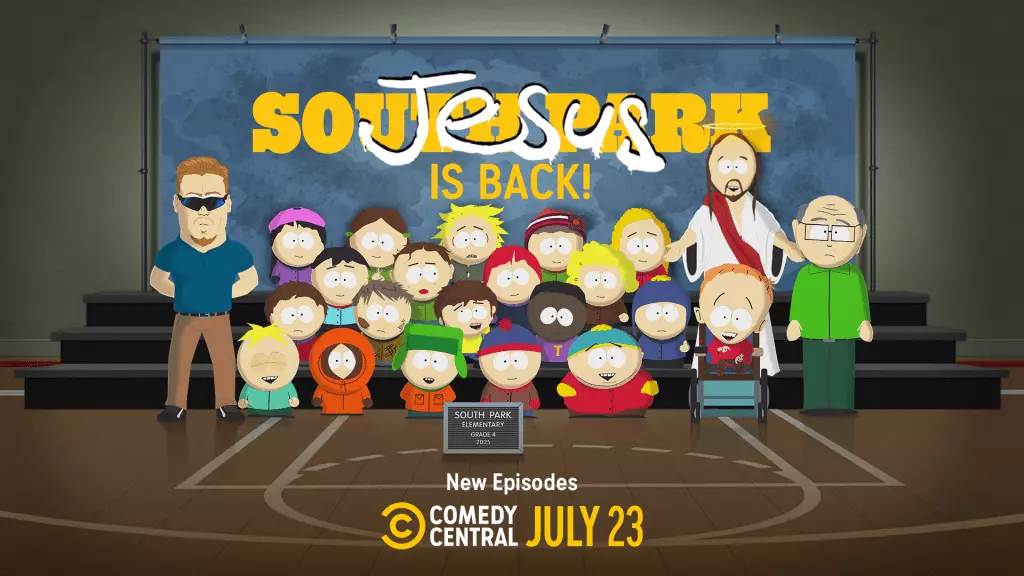For dedicated followers of South Park, the recent announcement of the delay from July 9 to July 23 for the Season 27 premiere feels less like a simple scheduling hiccup and more like a symptom of deeper industry conflicts. This venerable animated series has captivated audiences for over two decades, blending sharp satire with unapologetic humor. However, behind its irreverent facade lies a complex web of licensing disputes, corporate power struggles, and shifting streaming rights that threaten to overshadow the show’s creative output.
This postponement is emblematic of the increasingly complicated landscape of media rights and digital distribution. While fans eagerly anticipate new episodes featuring the iconic characters—Stan, Kyle, Cartman, Kenny, and others—the show’s creators and parent companies are embroiled in legal disagreements over who holds the rights to stream the series. These disagreements extend beyond routine negotiations; they reflect a broader tension between legacy media properties and emerging streaming giants vying for control of lucrative content.
The gap between the original release date and the new premiere emphasizes how industry strategies can disrupt even the most iconic franchises. Paramount Global, which owns South Park’s production company, South Park Digital Studios, has a vested interest in positioning the show prominently on its own streaming platform, Paramount+. Yet, the series’ streaming rights, previously held exclusively by HBO Max (now Max), have entered a limbo, with negotiations indicating a shift toward non-exclusive licensing arrangements. Such a move enables more platforms to offer South Park, but it also complicates efforts to streamline brand control and maximize profits.
Legal Battles Signal Shifts in Streaming Dynamics
The legal letter sent by Trey Parker and Matt Stone’s team reveals an intense standoff over licensing terms and future rights. They allege attempts by Warner Bros. Discovery (WBD) and Netflix to influence deal terms—specifically seeking shorter licensing periods and preferential rights to air new seasons beyond the existing exclusive window. This indicates that even creators who have historically maintained significant control over their content are not immune to the ruthless realities of modern media negotiations.
The creators’ decision to threaten legal action underscores a strategic attempt to protect their intellectual property and ensure future creative freedom. Their insistence on a 12-month exclusive window for Paramount+ before other platforms can distribute new episodes positions them as guardians of their brand integrity. It’s a fight that reflects broader concerns across the industry: the struggle to retain control amid a proliferation of streaming services and shifting viewer expectations.
Meanwhile, the existing episodes continue to be available on Max, but the uncertainty surrounding future distribution channels leaves fans in limbo. This situation exemplifies how legal tangles and corporate power plays can tarnish the experience of loyal audiences, who are often left to follow fragmented information and conflicting statements. The lack of clear communication from the streaming services adds to the frustration, highlighting how commercial interests often overshadow the art and fandom.
The Future of South Park hinges on Negotiations and Industry Shifts
As the legal dust settles, the fate of South Park’s streaming presence remains uncertain but optimistic. Paramount+ is still expected to host the show in time for the new season, reflecting the company’s strategic priority to centralize popular content. Co-creators Parker and Stone, who serve as executive producers, are fiercely protective of their creation—yet they also recognize the importance of navigating a rapidly changing digital landscape.
Their engagement highlights the tension between creative autonomy and corporate interests. For creators of South Park, the series has always been more than just a revenue stream; it’s been a vehicle for cultural commentary, and maintaining control over its distribution is critical to preserving its integrity. The ongoing legal confrontations and negotiations exemplify how industry giants often prioritize monetary gains over fan experience, risking alienation in the process.
Ultimately, the show’s capacity to adapt to these challenges will define its future relevance. As new streaming deals are finalized, one thing remains clear: South Park is a cultural institution whose impact extends well beyond its humor. Its continued success depends not only on clever writing and biting satire but also on the ability of its creators and parent companies to navigate the treacherous waters of digital rights management.
